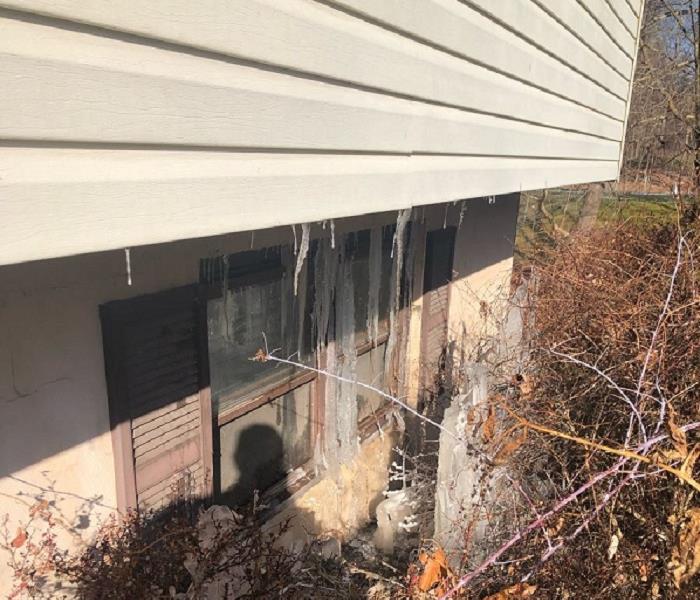How To Help Prevent Frozen Pipes this Winter in Hopewell Junction
8/6/2024 (Permalink)
 When frozen pipes burst, water always finds the easiest way out, often through your house! SERVPRO® will handle the water damage from start to finish!
When frozen pipes burst, water always finds the easiest way out, often through your house! SERVPRO® will handle the water damage from start to finish!
During the winter months in Dutchess County, frozen pipes are one of the most common calls we get to help homeowners with water damage. In fact, burst pipes are one of the biggest causes of water damage during the winter months, amounting to more than $5,000 in property losses on average (per household).
Understanding why pipes freeze, why frozen pipes burst and how these factors can lead to water damage is an important part of keeping your household dry and warm during the wintertime. Read on for our guide to frozen pipes and how to prevent them.
How Pipes Freeze and Why They Burst
When the weather is cold enough, any pipe can freeze—while those running through unheated areas such as exterior walls or basements are the most vulnerable, even pipes inside the home can become frozen if conditions are right.
When temperatures drop and the water inside the pipes begins to freeze, it can create a major problem as you will not be able to access running water. However, if frozen pipes are left alone and no effort is made to thaw them, the pressure inside will become too great and the pipe can actually burst open, leading to water damage.
Ways Frozen Pipes Can Cause Water Damage
Once a pipe bursts open, the chance for water damage is instantly increased. Instead of bursting directly where the frozen blockage is, pipes generally burst further up the line, in between a closed faucet and where the blockage occurs—quite often in a wall or under a sink, which may not be discovered immediately if it occurs. This allows all the built-up water to begin coursing through the breakage and flow freely through your home. Make no mistake, water will always find the path of least resistance, the easiest way out, and that might not be exactly the location of damaged pipe.
How to Prevent Pipes from Freezing
Fortunately, there are steps you can take to prevent their pipes from freezing and avoid the hassle and cost of water damage. By taking steps to help prevent pipes from freezing in the first place, it will greatly lessen the chances throughout the colder months:
- If you are leaving for a long period of time, make sure the heat stays set to above 50 degrees. Do not turn the heat off or postpone a regular fuel oil delivery.
- Leave faucets on a slight drip so water is constantly running through the pipes.
- Open cabinet doors in the kitchen and bathroom and ensure all the bedroom doors are open to increase airflow.
- Add insulation to exterior areas with water pipes and/or to the pipes themselves. Don’t forget the outside spigots. Simple steps like a light bulb being left on in a cold area combined with inexpensive pipe insulation could do the trick.
- Keep garage and cellar doors closed tightly if there are water lines inside.
Are you concerned that a pipe has burst in your home in Hopewell Junction? Contact us to have our trained experts inspect your home for moisture damage. SERVPRO® of Western Dutchess County is the local pro in water damage restoration, right here in the Hudson Valley for over 30 years and always here to help 24/7!





 24/7 Emergency Service
24/7 Emergency Service